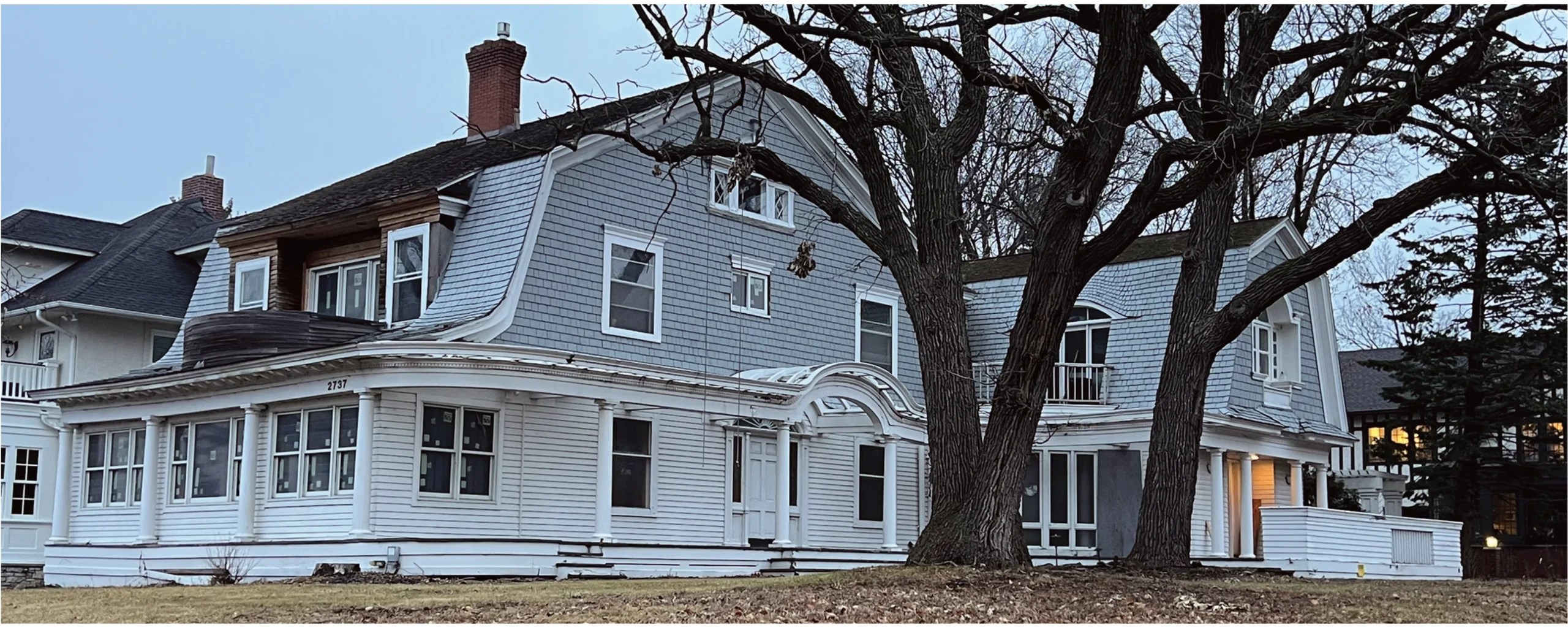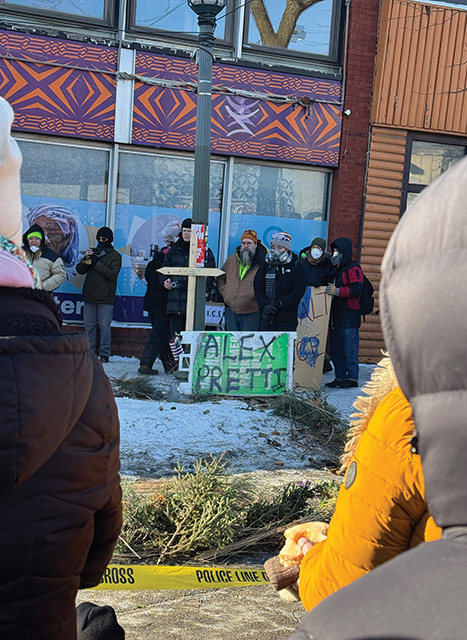In July 2023, Hennepin County seized the property at 2737 East Lake of the Isles Parkway due to the owner's failure to pay $60,000 in property taxes and vacancy fines.
Constructed in 1905, this landmark home occupies a commanding position at the intersection of 28th Street and Lake of the Isles Parkway. Set on a large airy lot and sheltered by mature trees, it offers sweeping sunset views over the lake.
But this once storybook-perfect house has been a topic of neighborhood conversation for over a decade, with neighbors and passersby alike wondering, “Why is this beautiful home falling apart?”
Enter Terry Persaud
Mahendra “Terry” Persaud acquired the property in October 2012 for $825,000. No mortgage was recorded in public records, which suggests it was bought with cash. Online data show that Persaud, a Minneapolis native, owns a property management business (via multiple LLC holding companies) with several multiunit apartment holdings in South Minneapolis and the Twin Cities suburbs, totaling a hundred rental units or more. He also owns the Sunset Beach Tropical Grill in Fort Myers, Florida.
Both his property management business and his restaurant have been subjects of complaints, negative media coverage and prolonged legal battles.
Since its purchase by Persaud, the Lake of the Isles property has remained unoccupied. Over the past twelve years, this once elegant and well-maintained home has deteriorated, failing multiple inspections and accruing significant overdue taxes (check Google Maps Street View images from 2007 to 2022 for a visual history of its decline).
In August 2017, the City of Minneapolis added the property to its Vacant and Abandoned Building Registry (VABR), triggering an annual $7,000 fine.

Over the years, the property has amassed a series of nuisance complaints, ranging from exterior issues to unmanaged snow and ice on sidewalks, and incidents of trespassing, breakins, fire and vandalism. The neighborhood consensus is that this prolonged neglect has had a detrimental impact on the local environment and quality of life. In addition to the nuisance issues reported to the city, Persaud’s unpaid county property taxes accumulated.
One morning in July 2023, Hennepin County workers seized the property for failure to pay taxes. They changed its locks and stickered the property with messages indicating the house was now owned by Hennepin County.
The East Isles neighborhood initially saw this as a positive turn of events, as the house had become not only an eyesore but also a safety hazard and a magnet for vandalism. They hoped it would be auctioned to a new owner who would restore its former place in the neighborhood.
However, their hopes were dashed a few weeks later when Persaud petitioned Hennepin County to repurchase the property. The community, including adjacent homeowners and residents of East Isles and East Isles Residents Association, united in opposing his petition. Dozens wrote letters and appealed to the County Auditor to find a new owner committed to improving the property.
Several neighbors testified at a hearing, which Persaud did not attend, urging the court to either auction the property to a new owner or impose stringent conditions on Persaud for its restoration. The City of Minneapolis also provided testimony, outlining a history of nuisance complaints associated with the property.
A month later, Derrick Hodge, Senior Administrative Manager for Hennepin County, ruled that Persaud could repay $63,000 in overdue taxes and reclaim the property without restriction. This decision, despite the noted strong community opposition, was based on a 1938 Minnesota Supreme Court case emphasizing the protection of property ownership against tax forfeiture, even in cases of owner negligence.
Coincidentally, the Persaud decision came a few months after a U.S. Supreme Court ruling against Hennepin County in another property seizure case (Tyler v. Hennepin County).
All nine justices, in a rare unanimous decision, criticized the county's overreach. It is easy to speculate that such a high profile and national scolding of this same Hennepin County department played into the auditor's decision in the Persaud case.
Some wonder what Persaud's rationale may be.
It can seem financially wasteful to pay these taxes each year and not live in the home.
However, for those with sufficient cash flow, it can be a lucrative strategy.
In real estate circles it's known as “demolition by neglect,” whereby a home is allowed to degrade, keeping its property taxes manageably low while the land value appreciates.
After many years, the dilapidated building can be demolished, and the land sold for a significant profit over the original purchase price and minimized annual property taxes.
That may be this property's future.
While a multi-million dollar abandoned property is unusual, the issue of vacant and abandoned properties is a widespread concern in Minneapolis, especially for buildings that could be used for affordable housing.
In 2023, the City Council considered a ordinance to increase the VABR fine from $7,000 to up to $24,000 per year. The intent behind the proposed increase was to make demolition by neglect more costly for the owners to facilitate the sale of such properties and their return to housing stock sooner. However, the ordinance was not put to a vote.
The saga ends for now. Persaud's hold on the property is free and clear unless tax delinquency becomes an issue again.






